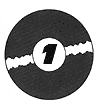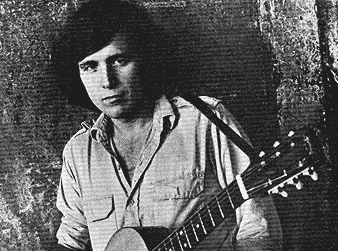 |
|
|
 |
From the book The Top Ten: 1956 — Present by Bob Gilbert and Gary Theroux
Simon & Schuster, 1982 - soft cover
Page 205
 |
|
|
 |
According to his parents, Don McLean knew more than one hundred songs by the time he was two years old. Born and raised in New Rochelle, New York, he suffered from asthma, which limited his sports play. Instead, he turned to music, and became a fan of Little Richard and Buddy Holly.
"Buddy was the person who made me learn the guitar," recalled Don. To me, he had a certain energy, and I loved the way he played. I knew I was going to make a living at music for the simple reason that I didn't want to have to wear a suit or take a day job."
For a brief time, Don did hold down daytime employment as a paper boy, at age twelve. Later, he would mention that fact in the opening lyrics of "American Pie."
While in high school, Don developed an interest in native American music, especially instrumentals that he could play on the guitar or banjo. He performed at parties, and after graduation, started to work the folk club circuit. Don was quickly accepted by such veterans as Josh White, Fred Hellerman, and Pete Seeger, and in 1967, began writing songs.
In 1970, Don put several tunes on tape and went shopping for a label deal. He was turned down by thirty-seven companies before signing with Media Arts. They released his first LP Tapestry, and a single from it, "Castles in the Air." Both were flops.
Media Arts was bought out by United Artists, and Don was added to the UA roster. Shortly thereafter, he began work on "American Pie." It was a slice of what he'd been thinking about for ten years, and was conceived as a rousing encore to his live show.
"That song didn't just happen." said Don. "It grew out of my experiences. 'American Pie' was part of my process of self-awakening; a mystical trip into my past."
Don explained how he came to be a spokesman for the suburban middle class. "I try to create music that represents me—where I came from and who I am. I'll sing about my experiences, growing up white and middle class in New Rochelle."
Don called his song a complicated parable, open to different interpretations. "People ask me if I left the lyrics open to ambiguity. Of course I did. I wanted to make a whole series of complex statements. The lyrics had to do with the state of society at the time."
In the late sixties and early seventies, Don was obsessed with what he called "the death of America"—the loss of many things he believed in while growing up. "In that sense, 'American Pie' was a very despairing song. In another, though, it was very hopeful. Pete Seeger told me he saw it as a song in which people were saying something. They'd been fooled, they'd been hurt, and it wasn't going to happen again. That's a good way to look at it—a hopeful way."
"American Pie" was released in November 1971, and moved up the charts faster than any other UA record in history. It reached number one in January 1972, and stayed on the hit parade for nearly four months. It sold more than three million copies as a single, five million as an album.
Don followed his hit with a ballad, "Vincent." On the flip side was "Castles in the Air." Both sides became radio staples in 1972, as did another song, "Driedel." In 1973, Don appeared at L.A.'s Troubadour Club before a packed house, including singer Lori Lieberman. Her experience of watching Don perform "American Pie" inspired the biggest hit of that year, "Killing Me Softly with His Song." Don then faded from public view, only to stage a comeback in 1981 with "Cryin'."
Home